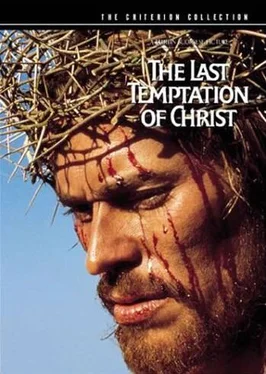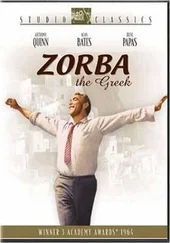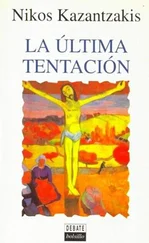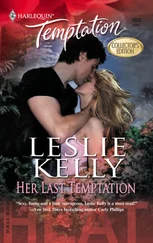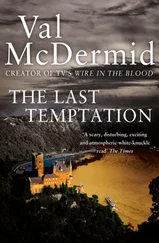Nikos Kazantzakis - The Last Temptation of Christ
Здесь есть возможность читать онлайн «Nikos Kazantzakis - The Last Temptation of Christ» весь текст электронной книги совершенно бесплатно (целиком полную версию без сокращений). В некоторых случаях можно слушать аудио, скачать через торрент в формате fb2 и присутствует краткое содержание. Жанр: Современная проза, на английском языке. Описание произведения, (предисловие) а так же отзывы посетителей доступны на портале библиотеки ЛибКат.
- Название:The Last Temptation of Christ
- Автор:
- Жанр:
- Год:неизвестен
- ISBN:нет данных
- Рейтинг книги:5 / 5. Голосов: 1
-
Избранное:Добавить в избранное
- Отзывы:
-
Ваша оценка:
- 100
- 1
- 2
- 3
- 4
- 5
The Last Temptation of Christ: краткое содержание, описание и аннотация
Предлагаем к чтению аннотацию, описание, краткое содержание или предисловие (зависит от того, что написал сам автор книги «The Last Temptation of Christ»). Если вы не нашли необходимую информацию о книге — напишите в комментариях, мы постараемся отыскать её.
The Last Temptation of Christ — читать онлайн бесплатно полную книгу (весь текст) целиком
Ниже представлен текст книги, разбитый по страницам. Система сохранения места последней прочитанной страницы, позволяет с удобством читать онлайн бесплатно книгу «The Last Temptation of Christ», без необходимости каждый раз заново искать на чём Вы остановились. Поставьте закладку, и сможете в любой момент перейти на страницу, на которой закончили чтение.
Интервал:
Закладка:
“We’re listening, Holy Abbot,” said Father Habakkuk, the oldest of the Abbot’s suite, and he placed his hand over his heart.
“These are my last words, Friars. You’re all thick-headed, so I shall speak in parables.”
“We’re listening, Holy Abbot,” Father Habakkuk repeated.
The Abbot bowed his head and lowered his voice. “First came the wings and then the angel!”
He stopped, glanced at the monks one by one, then shook his head. “Friars, why do you look at me like that, with open mouths? Father Habakkuk, you raised your hand and moved your lips. Do you have some objection?”
The monk put his hand to his heart. “You said, ‘First came the wings and then the angel.’ We never noticed those words in Scripture, Holy Abbot.”
“How could you have noticed them, Father Habakkuk? Alas! your minds are still dim. You open the prophets and your eyes are able to see nothing but the letters. But what can the letters say? They are the black bars of the prison where the spirit strangles itself with screaming. Between the letters and the lines, and all around the blank margins, the spirit circulates freely; and I circulate with it and bring you this great message: Friars, first came the wings and then the angel!”
Father Habakkuk reopened his mouth. “Our minds, Holy Abbot, are lamps which have gone out. Light them, light them so that we may enter into the parable, and see.”
“In the beginning, Father Habakkuk, was the longing for freedom. Freedom did not exist, but suddenly, at the very depths of slavery, one man moved his manacled hands quickly, violently-as though they were wings; and then another, and another, and finally the entire people.”
Questioning voices rang out joyfully: “The people of Israel?”
“Yes, Friars, the people of Israel! This is the great and terrible moment which we are now passing through. The yearning for freedom has grown ferocious; the wings are beating wildly; the liberator is coming! Yes, Friars, the liberator is coming, because… Wait-this angel of freedom: what do you think he’s made of? Of God’s condescension and charity? Of his love? His justice? No, this angel is made of the patience, obstinacy and struggle of mankind!”
“You place a great obligation, an unbearable weight, on man, Holy Abbot,” old Habakkuk ventured to object. “Do you have that much confidence in him?”
But the Abbot ignored the objection. His mind was riveted on the Messiah. “He is one of our sons,” he cried. “That is why the Scriptures call him the son of man! Why do you think thousands of Israel ’s men and women have coupled, generation after generation? To rub their backsides and titillate their groins? No! All those thousands and thousands of kisses were needed to produce the Messiah!”
The Abbot banged his crosier vigorously against the stall. “Take care, Friars! He may come in the middle of the day, he may come in the middle of the night. Keep yourselves constantly prepared: bathed, hungry, wakeful. Woe is you if he finds you filthy, satiated or asleep!”
The monks herded one against the other and dared not look up to see the Abbot. They felt a wild flame flow out of the top of his head and attack them.
Coming down from his stall, the moribund advanced with firm steps toward the frightened herd of fathers. He held out his crosier and touched them one by one. “Take care, Friars!” he cried. “If the yearning is broken off for even an instant, the wings become chains again. Stay vigilant, fight, keep the torch of your soul burning day and night. Strike! Forge the wings! I’m going-I am in a hurry to speak to God. I’m going… These are my final words: Strike! Forge the wings!”
Suddenly he stopped breathing, and the crosier slid out of his hand. Without a sound the old man fell tranquilly, gently, down on his knees and rolled silently onto the flagstones. The novice uttered a cry and ran to help his superior. The monks moved away from the wall, stooped, laid the Abbot out on the stones, and lowered the seven-branched candelabrum and placed it next to his livid, immobile face. His beard gleamed; his white gown had opened, revealing the rough cassock with the sharp iron hooks which swaddled the old man’s bloody chest and flanks.
Father Habakkuk placed his hands over the Abbot’s heart. “He’s dead.”
“His deliverance has come,” said someone else.
“The two friends have parted and returned to their homes,” a third person whispered, “the flesh to the soil and the soul to God.”
But while they talked and arranged to have water heated in order to wash him, the Abbot opened his eyes. The monks recoiled in terror and gazed at him. His face was resplendent, his thin, long-fingered hands moved, his eyes were riveted ecstatically upon the air.
Father Habakkuk knelt and again placed his hand over the Abbot’s heart. “It’s beating,” he whispered. “He’s not dead.”
He turned to the novice, who was prostrate at the old man’s feet, kissing them. “Get up, John. Mount the fastest camel and race to Nazareth to bring old Simeon, the rabbi. He’ll cure him. Quick; it’s getting light!”
Day was breaking. The clouds had scattered; the satiated, freshly bathed earth gleamed and looked up at the heavens with gratitude. Two sparrow hawks leaped into the sky and flew circles over the monastery to dry off.
Wiping away his tears, the novice went to the stable and chose the fastest camel, a young, slender one with a white star on her forehead. He made her kneel, then mounted and let out a yodeling, throaty cry. The camel wrenched herself away from her foundations, stood up and with great strides started to race toward Nazareth.
The morning gleamed over the lake of Gennesaret. The water scintillated in the early light, muddy at the banks from the soil which the rains had washed down during the night, farther on blue-green, and farther still milky white. The sails of the fishing boats were stretched out to dry. Some boats were already in open waters: the fishing had begun. Rosy-white ring plovers perched happily on the quivering water. Black cormorants stood on the rocks, their round eyes pinned on the lake in case any fish should surface to rollick gleefully in the foam. Next to the shore a Capernaum drenched to the bone was awakening: cocks shook the water from their feathers, donkeys braved, calves mooed tenderly; and, mixed in with these ill-matched sounds, the meaningful talk of human beings added security and gladness to the air.
Ten or so fishermen in an isolated cove, their large feet braced in the pebbles, were singing softly while they slowly, dexterously pulled in the nets. Over them stood old Zebedee, their loquacious and seven-times-cunning boss. He pretended that he loved every one of them like a son and pitied them, but he did not give them a moment’s rest. They were paid by the day, and voracious old gobble-jaws made sure they did not relax for even a second.
Bells chattered. A herd of goats and sheep bounded toward the shore. Dogs barked; someone whistled. The fishermen turned to look, but old Zebedee rushed forward. “It’s Philip and his philipkins,” he said with irritation. “As for us, back to work!”
He grabbed the rope himself and pretended to help.
Fishermen continually appeared from the village, loaded down with nets and followed continually appeared their wives, who carried the day’s provisions balanced on their heads. Sunburned boys lost no time in grasping the oars and rowing. They stopped every two or three strokes to bite the dry crusts they held in their hands. Philip stepped up onto a rock where he could be seen, and whistled. He wanted to chat, but old Zebedee frowned. Cupping his hands to his mouth, he shouted, “Leave us alone, Philip. We’ve got work to do. Go somewhere else!” And he turned him a cold shoulder.
Читать дальшеИнтервал:
Закладка:
Похожие книги на «The Last Temptation of Christ»
Представляем Вашему вниманию похожие книги на «The Last Temptation of Christ» списком для выбора. Мы отобрали схожую по названию и смыслу литературу в надежде предоставить читателям больше вариантов отыскать новые, интересные, ещё непрочитанные произведения.
Обсуждение, отзывы о книге «The Last Temptation of Christ» и просто собственные мнения читателей. Оставьте ваши комментарии, напишите, что Вы думаете о произведении, его смысле или главных героях. Укажите что конкретно понравилось, а что нет, и почему Вы так считаете.
